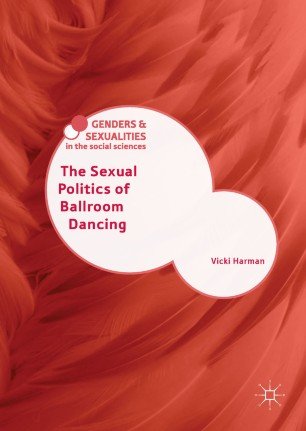Research on ballroom dancing and gender roles featured on Radio 4
Surrey Sociology's Vicki Harman was recently interviewed as part of a Radio 4 Thinking Allowed episode on the social history and gender politics of ballroom dancing (broadcast on 1 June 2022). Read more about her research and writing on the subject, and collaboration with colleagues, below.

Since ‘Strictly Come Dancing’ began on BBC 1 in 2004, there has been a resurgence of interest in Ballroom and Latin American Dancing. As a sociologist who began this type of dancing at the age of 3, Vicki Harman (Reader in Sociology at Surrey University) was interested in taking a deeper look into this phenomenon. She conducted ethnographic research at a leading dancing school in the South of England, taking part in local and national dancing competitions and interviewing dancers ranging from in their early twenties to mid-eighties.
The resulting book, The Sexual Politics of Ballroom Dancing (Palgrave, 2019) explores what ballroom dancing means to those who take part in this form of dancing as part of their leisure activities today and considers how contemporary men and women negotiate the intrinsic gender roles underpinning the mainstream practice of the activity. For example, women typically start dancing earlier than men so are often more experienced dancers but may be criticised as being ‘too strong’ or ‘not waiting’ for their partners to lead them. For such dancers, being referred to as a ‘strong woman’ was both a compliment and a caution. The book suggests that men’s central position within the cultural imagination of what ballroom dancing is, at the same time as the relatively low numbers of male participants puts them in a dominant position in terms of partnership selection within mainstream ballroom dancing.
Since the publication of Dr Harman's book, research on dancing has continued within the Department of Sociology. Yen Nee Wong (now an associate at the University of Exeter) has completed an excellent PhD titled ‘Doing and ‘undoing’ gender and sexuality through equality dancing in the United Kingdom’. Dr Wong's PhD brought together empirical data from semi-structured interviews with photo-elicitation and embodied fieldwork, investigating identity work in same sex partner dancing, including costuming, accessorising and choices around leading and following. This was jointly supervised by Vicki Harman and Andrew King.
In recent years, Strictly Come Dancing has included same-sex partnerships, initially through professional partnerships within the showdances, and then through celebrity/ professional partnerships. Dr Harman and Dr Wong have published a piece on the introduction of same sex dancers on Strictly Come Dancing and its significance for this form of leisure. With co-author Craig Owen from Anglia Ruskin University, Dr Wong and Dr Harman have also published an analysis of media reactions to male/male dance partnerships on British reality TV Shows, showing both positive responses and limitation to the representations through the emphasis on bromance. With Dr Owen, Dr Harman has published a book chapter on how dance is marketed to boys and men within a book titled Masculinity, Intersectionality and Identity: Why Boys Don’t Dance.
Listen to Vicki Harman speak about her research on Ballroom Dancing on Thinking Allowed on Wednesday 1st June 2022 at 4pm.
